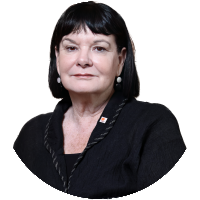A Devex event in partnership with the World Bank
The Road to COP 28:
It’s Still the Economy,
the Political Economy of
Climate Transformation
November 16, 2023 | 9-10 a.m. ET | 3-4 p.m. CET
Online
Online
About the Event
The climate crisis is the biggest and most complex challenge the world currently faces, and it will take a monumental and coordinated effort across countries and sectors to tackle the crisis and respond to already occurring impacts.
While 2023 is poised to be the hottest year on record, the impacts of a warming climate are far from spreading evenly around the globe. The world’s lowest-income and most vulnerable are disproportionately affected by climate impacts. East Africa is experiencing its worst drought in over 40 years, contributing to a severe hunger crisis; China broke a national heat record this summer when it recorded 52.2 degrees Celsius; Pakistan suffered a severe heat wave in 2022 that was later followed by intense rainfall and flooding, impacting over 33 million people and flooding one-third of the country. And studies have shown that the recent floods in Libya were made 50 times more likely by climate change.
Despite technological progress and falling costs in many sectors, countries are not on track to sufficiently limit global warming. So what is holding back progress, especially if it’s not technological or economic? How much of a role is played by political economy barriers? More importantly, what can be done to overcome these barriers? What kinds of lessons do approaches in countries such as Chile, Turkey, Morocco, or India have in terms of navigating these pitfalls and effectively transforming sectors and improving lives at the pace and scale needed?
As the global community gears up for COP 28, Devex, in partnership with the World Bank, will host an online event exploring the political economy of the climate transformation. This event will provide a platform for conversations about what it takes to get climate-smart policies working for people, delivering results, and unlocking much-needed finance.
Join us online for this thought-provoking discussion as we explore the political economy of the climate transition.
Watch
Agenda
9:00 a.m. ET
Welcome remarks
• Raj Kumar, president and editor-in-chief, Devex
9:03 a.m. ET
Fireside chat: Navigating the political economy of climate action
Speaker:
• Stéphane Hallegatte, senior climate change adviser, World Bank, president and co-founder, NewGlobe
Devex interviewer:
• Raj Kumar, president and editor-in-chief, Devex
9:18 a.m. ET
Panel conversation: Country insights and policy solutions
Speakers:
• Sharan Burrow, consultant at Just Transition Solutions, and former general secretary at the International Trade Union Confederation
• Dr. Arunabha Ghosh, chief executive officer, Council on Energy, Environment and Water (CEEW)
• Stéphane Hallegatte, senior climate change adviser, World Bank
Devex interviewer:
• Raj Kumar, president and editor-in-chief, Devex
9:48 a.m. ET
Audience Q&A
• Raj Kumar, president and editor-in-chief, Devex
• All previous speakers
9:58 a.m. ET
Closing remarks
• Raj Kumar, president and editor-in-chief, Devex
Speakers:

Stéphane Hallegatte
Senior climate change adviser, World Bank

Dr. Arunabha Ghosh
Chief executive officer, Council on Energy, Environment and Water (CEEW)

Sharan Burrow
Consultant at Just Transition Solutions, and former general secretary at the International Trade Union Confederation
Interviewer


